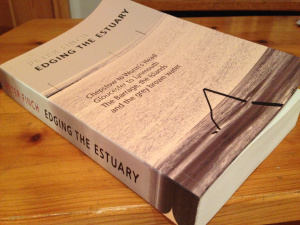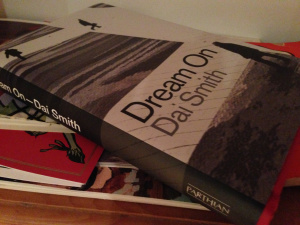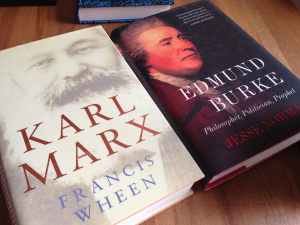I can’t list books of the year in the way that I can with albums and songs because I’m not very good at keeping up with new publications and anyway it takes longer than with music for me to read and re-read in order to work out if I like, love or hate a book. Having said that, I do love a list and find them incredibly handy for recommendations myself, so here are some of the books that I’ve most enjoyed in the last twelve months.
New and nearly new
I relished every one of the 800+ pages of ‘the Luminaries’ by Eleanor Catton. It’s satisfying as a detective story, rich in character, utterly absorbing and I was doubly chuffed because it was the first time I’ve read a Booker winner before it even made the long list.
Robert Shepherd’s ‘Westminster: A Biography’ has transformed the way that I see somewhere that I mainly know as a place of work. I used to rush straight through Westminster Hall on my way somewhere else. Now I always stop and look at where the King’s Bench used to be or up at the miraculously ancient roof.

The bare facts of Leonard Cohen’s life and musical career are interesting enough but ‘I’m Your Man: the Life of Leonard Cohen’ by Sylvie Simmons is as fascinating as it is thorough. She obviously thinks the world of him but pays him the true compliment of not treating him as a secular saint, instead laying bare his less-endearing qualities alongside the admirable to show exactly where his art comes from.
I loved and hated ‘The North (And Almost Everything In It)’ by Paul Morley. As I wrote in Wales Arts Review, it’s an astonishing achievement but I doubt I’ll ever read it again. The first time I read Jeanette Winterson’s ‘The Daylight Gate’ I was terrified but impressed, but sadly when I tried to re-read it recently I found it simply nasty and gave up. A much happier experience, although also disconcerting was reading ‘Too Cold for Snow’ by Jon Gower. These short stories are peculiar, occasionally violent and often hilarious. They will haunt you long after you’ve closed the book.
Peter Finchis an engaging companion in any circumstances and if you have to walk around the edge of the Severn  estuary in all weathers, you’d want him with you. What ‘Skirting the Estuary’ is brilliant at depicting is the way rules are turned on their head in the partly rural, partly industrial lands, the
estuary in all weathers, you’d want him with you. What ‘Skirting the Estuary’ is brilliant at depicting is the way rules are turned on their head in the partly rural, partly industrial lands, the
stuff that only happens in places where one thing ends and another begins. Liminal. Edge. Interzone. Fringe.
Occasionally the journey-structure lags as any real-world walk would and sometimes it’s a shame that such a generous-minded writer lets disappointment with modern life leak in: children and hen parties are always ‘screeching’ and there are repeated jibes at health and safety. But these are minor flaws and by blending geography and history, people and politics with snatches of memoir, ‘Skirting the Estuary’ makes you want to walk out to the edges and let the grit, salt and sea blow into your face.
 Dai Smith also lets himself indulge in a bit of ‘modern life is rubbish’ in ‘Dream On’ but thankfully not much in what are magnificently awkward, disconcerting, shifting slices of life and history in the South Wales Valleys. It is richly-written and nostalgic without being sentimental about a place and time overshadowed by the rise and fall of an industry and the way that shaped the character of the place and the people.
Dai Smith also lets himself indulge in a bit of ‘modern life is rubbish’ in ‘Dream On’ but thankfully not much in what are magnificently awkward, disconcerting, shifting slices of life and history in the South Wales Valleys. It is richly-written and nostalgic without being sentimental about a place and time overshadowed by the rise and fall of an industry and the way that shaped the character of the place and the people.
Andrew Adonis’ ‘Five Days In May’ tells the story of the coalition negotiations of 2010 like a thriller. It’s utterly exhilarating. I’d read anything about the record label 4AD but even so, Martin Aston’s ‘Facing the Other Way’ tells an astonishing story of brilliant people doing brilliant things and struggling as a consequence.
 Jesse Norman’s biography of Edmund Burke gives you two-in-one: the story of an extraordinary life and the case for why we should care about the man who made the conservative case for evolutionary reform and the rationale for political parties. The second half acts as a primer to Burke’s thought. I much preferred the life which is why I followed it up by re-reading Francis Wheen’s brilliant biography of Karl Marx not just for unintentional political balance but also because it and Jesse Norman’s book are polar opposites as types of biography. Where Norman’s displays one political practitioner’s respect for another, Wheen’s is a journalist’s work - gossipy and focussing so much on the real person at the expense of why he thinks what he does that I ended it still unsure why Marx became a socialist at all other than as a way of rebelling against his parents.
Jesse Norman’s biography of Edmund Burke gives you two-in-one: the story of an extraordinary life and the case for why we should care about the man who made the conservative case for evolutionary reform and the rationale for political parties. The second half acts as a primer to Burke’s thought. I much preferred the life which is why I followed it up by re-reading Francis Wheen’s brilliant biography of Karl Marx not just for unintentional political balance but also because it and Jesse Norman’s book are polar opposites as types of biography. Where Norman’s displays one political practitioner’s respect for another, Wheen’s is a journalist’s work - gossipy and focussing so much on the real person at the expense of why he thinks what he does that I ended it still unsure why Marx became a socialist at all other than as a way of rebelling against his parents.
Reread
James Joyce’s ‘Dubliners’ again left me open-mouthed in wonder at the most perfect short stories. The final paragraph of ‘The Dead’ leaves you floored and breathless every time.
Until this year I hadn’t reread ‘Birthday Letters’ by Ted Hughes since it was first published. I don’t know which is the most devastating: the line ‘Daddy, where’s Mummy?’ from ‘The Visit’ or the heartbreaking end of ‘The Shot:’
I managed
A wisp of your hair, your ring, your watch, your nightgown.
Salman Rushdie’s ‘The Ground Beneath Her Feet’ remains a rapturous and sumptuous slice of myth making even if the rock ‘n’ roll is the least convincing aspect of this rock ‘n’ roll novel.
I reread ‘Orlando’ every few years. It’s Virginia Woolf at her happiest. Her Bloomsbury pal Lytton Strachey got me through some of the political conferences. ‘Eminent Victorians’ is a great antidote: funny, sarcastic and totally disrespectful of authority whilst adopting a tone of reverence.
Patrick Hannan also had a healthy disrespect of authority and relished the ridiculous aspects of politics. Four years after his death, his writing is still about the best on Welsh politics. His ‘Wales Off Message’ made me laugh again and still gave me new insights on events I remember and reported on myself.
New Old
The short stories of Flannery O’Connor amazed and disturbed me; I was devastated by Richard Yates’ ‘Revolutionary Road’ and lost in the rain-drenched blend of intense love, religious belief and rejection of religious belief in Graham Greene’s ‘The End of the Affair’
I was surprised how much I enjoyed ‘War of the Worlds’ by HG Wells, the slow realisation of the danger posed by the Martians which spreads like a ‘fever.. that would presently clog vein and artery’ and the chosen totems that Wells picks out to show that the world which is being destroyed is the comfortable world of middle-class English suburbia: Leatherhead, Woking, gardening and golf. In its place a Darwinian revivification of life seems possible for a moment but is snuffed out along with the invaders.